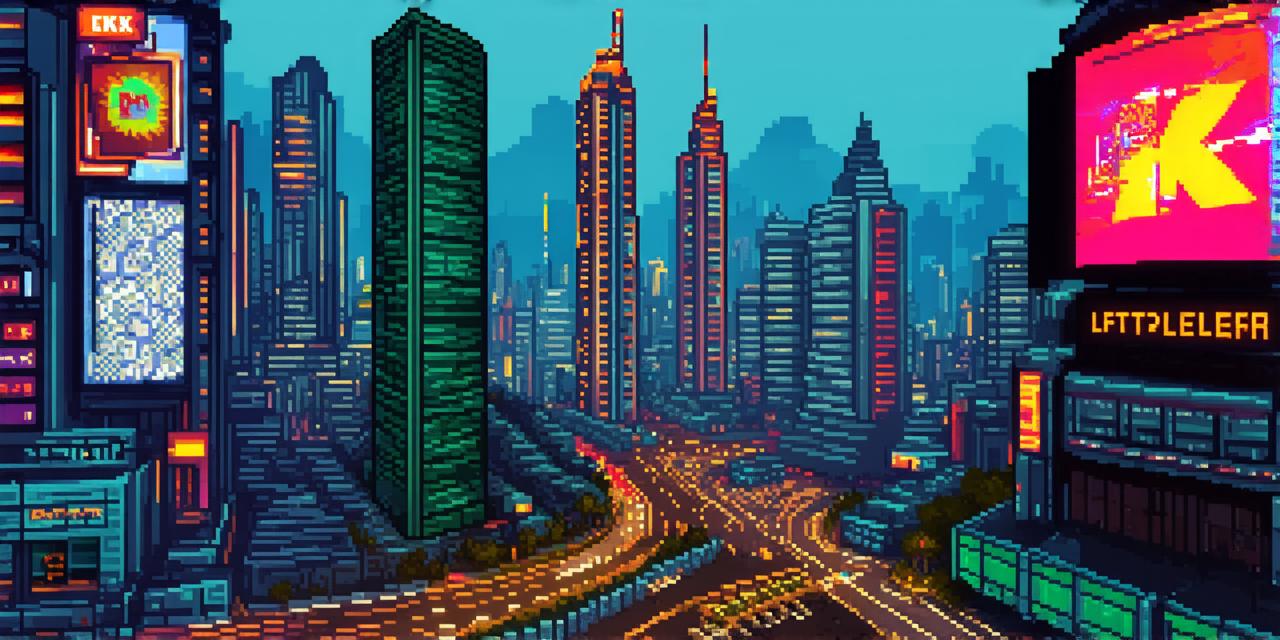1. Unity: The Most Popular Game Engine
Unity is one of the most widely used game engines in the industry, with over 2 million active users. It offers a powerful set of tools for creating both 2D and 3D games, as well as virtual reality (VR) and augmented reality (AR) experiences. Unity also supports multiple programming languages, including C, JavaScript, and Boo.
One of the main benefits of using Unity is its ease of use. It has a user-friendly interface that allows even beginners to create complex games with minimal coding. Additionally, Unity offers a wide range of assets, including pre-made characters, environments, and sound effects, which can save developers time and money.
2. Unreal Engine: The Powerhouse of Game Development
Unreal Engine is another popular game engine used by game developers worldwide. It offers advanced graphics capabilities, making it ideal for creating high-quality, immersive games with realistic visuals. Unreal Engine also supports a wide range of programming languages and has a large community of developers who contribute to its continued development.
One of the key features of Unreal Engine is its physics engine, which allows developers to create highly interactive and dynamic game environments. This makes it ideal for creating action-packed games with complex movement mechanics. Additionally, Unreal Engine offers a wide range of tools for creating animations, sound effects, and other game elements.
3. GameMaker: The Accessible Alternative
GameMaker is a popular game engine that offers an accessible alternative to more advanced engines like Unity and Unreal Engine. It is designed to be easy to use, even for those with no coding experience. GameMaker uses a drag-and-drop interface that allows developers to create games using pre-made assets and templates.
One of the main benefits of using GameMaker is its speed. It offers fast rendering times and can handle complex game mechanics with ease. Additionally, GameMaker has a large community of developers who contribute to its continued development and offer support and resources for new users.
4. Godot: The Open-Source Alternative
Godot is an open-source game engine that offers a powerful set of tools for creating both 2D and 3D games. It is designed to be easy to use, with a focus on simplicity and accessibility. Godot uses its own programming language, which is similar to C and JavaScript, making it easier for developers to learn and use.
One of the main benefits of using Godot is its flexibility. It supports multiple game formats, including HTML5, allowing developers to create games that can be played on a wide range of devices. Additionally, Godot has a large community of developers who contribute to its continued development and offer support and resources for new users.
Case Studies: Successful Game Developers Share Their Experiences
1. Unity: Super Mario Run
Nintendo’s Super Mario Run is one of the most successful mobile games of all time, with over 800 million downloads worldwide. It was created using Unity, and Nintendo worked closely with Unity Technologies to optimize the game for mobile devices.

One of the key features of Super Mario Run is its use of Unity’s physics engine, which allowed developers to create realistic and engaging gameplay mechanics.
